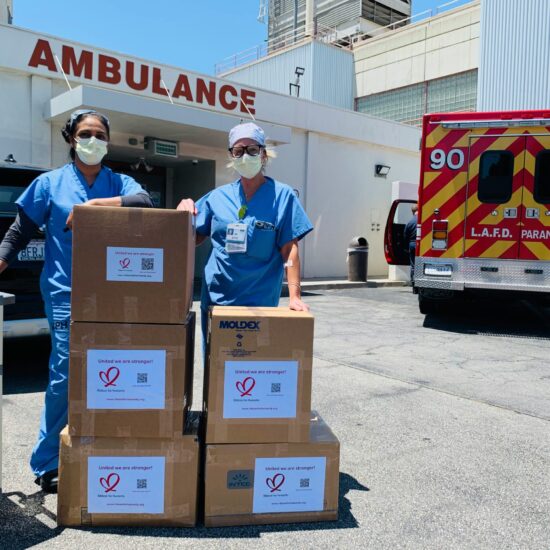This post is by CHMP’s graduate fellow, Amanda Anderson, RN. Amanda is a practicing bedside nurse in Manhattan, and a grad student at the Hunter-Bellevue School of Nursing, where she co-directs The Nurses Writing Project. Her personal site, This Nurse Wonders, hosts her writing, and she tweets @12hourRN.
 Perhaps I should have started this blog with a disclaimer: I read the paper. As in, I’m one of those worldly city dwellers helping to keep the New York Times’ shrinking home delivery market afloat. In addition to killing trees each morning, I eat pricey doughnuts in my $10 million kitchen. Or so I’m told.
Perhaps I should have started this blog with a disclaimer: I read the paper. As in, I’m one of those worldly city dwellers helping to keep the New York Times’ shrinking home delivery market afloat. In addition to killing trees each morning, I eat pricey doughnuts in my $10 million kitchen. Or so I’m told.
My preference for formal, in-person breakfasts with The Grey Lady means missing out on hyperlinks. With newsprint wrinkling between my fingers, an article by Richard A. Oppel, Jr. about the new VA chief’s push to hire more clinicians, that mentioned nurse practitioners, seemed promising. But later, online, the same, “…nurse practitioners…,” led me to a chronological listing of all NYT nursing content. It took me a minute to realize I had landed on the equivalent of a generic Google search.
The lone, nurse-centric sentence in this article, which is about the VA Health system’s push to solve its critical shortage of providers, calls attention to the widely discussed idea that nurse practitioners might be a crucial part of the solution. But Oppel’s link wastes an opportunity for readers to understand the real story – or anything pertinent – about nurse practitioners.
The hyperlink is the modern-day citation, and really quite incredible. As a writer, it’s your wild card chance to allow your reader to choose to go deeper into the story, into another dimension of comprehension. Obviously, if, as a news organization, you hope to garner as many clicks as possible, it’s good to stick to self-promotion, like the Times largely does. But a well-linked piece not only has the power to contextualize an unfamiliar subject, it moves readers to act beyond the page before them.
A strategic hyperlink also helps readers see between the lines, behind the newsprint. Oppel’s mass-linking shortchanged his readers from understanding the specific reality that this new VA administration could bring to patients via its use of nurse practitioners: By filling provider gaps with these highly-capable clinicians in all fifty states, the VA would likely play a critical role in decreasing NP barriers to full practice, while simultaneously fixing its own short staffing. Regardless of the Times’ stance, readers should get a chance to enter this dialogue.
So, when the Times broke from its usual MD-speak and referenced “nurse practitioners” in print, it felt like a celebrated event. Deflated by his lackluster online follow up, I asked Oppel for an explanation. He dismissed my query with the simple: “I assume he [the copy editor] thought it would be good for people who wanted to read more about nurses and NPs.” Although Oppel linked other topics in the article similarly, it’s interesting that “doctors” wasn’t one of them.
I don’t think many nurses recognize the true power of the almighty click. With each hyperlink we post or share, we pass along our stamp of digital endorsement, one that says we hope the organization or author we linked, sees more page views, readers gained, money made, information spread, and maybe even policy improved. Linking and getting linked to is a way of sending business, like an intentional product placement. Me linking to these hard-hitting Times folk will likely go unnoticed, but if they linked to this nurse? Well, shoot. So, while it’s nice that Oppel gave the public a shortcut to the Times’ comprehensive nursing content, I’m starting to think twice about pushing free advertising – via my hyperlinking – to an orgaization whose linking morals don’t really line up with my own.
You see, the content behind Oppel’s link isn’t the biggest issue, here – I’m primarily frustrated by its lack of intention. When I’m reading a sentence that suggests the existence of an ongoing discussion about a topic, it’d be a lot more helpful if I was directed to content that furthers my understanding of its specifics. Oppels’ – and his editors’ – blanket-link to all nursing content, when writing specifically about the role nurse practitioners play in solving the shortage of primary care physicians in America, suggests they see the nursing profession as a simplistic and one-dimensional topic unworthy of an intentional link.
Oppel didn’t have to take a stand, but he didn’t have to halfheartedly link, either. I found plenty of articles via his original link that might’ve prompted a meaningful dialogue about this topic. After I typed in, “nurse practitioners,” that is.








